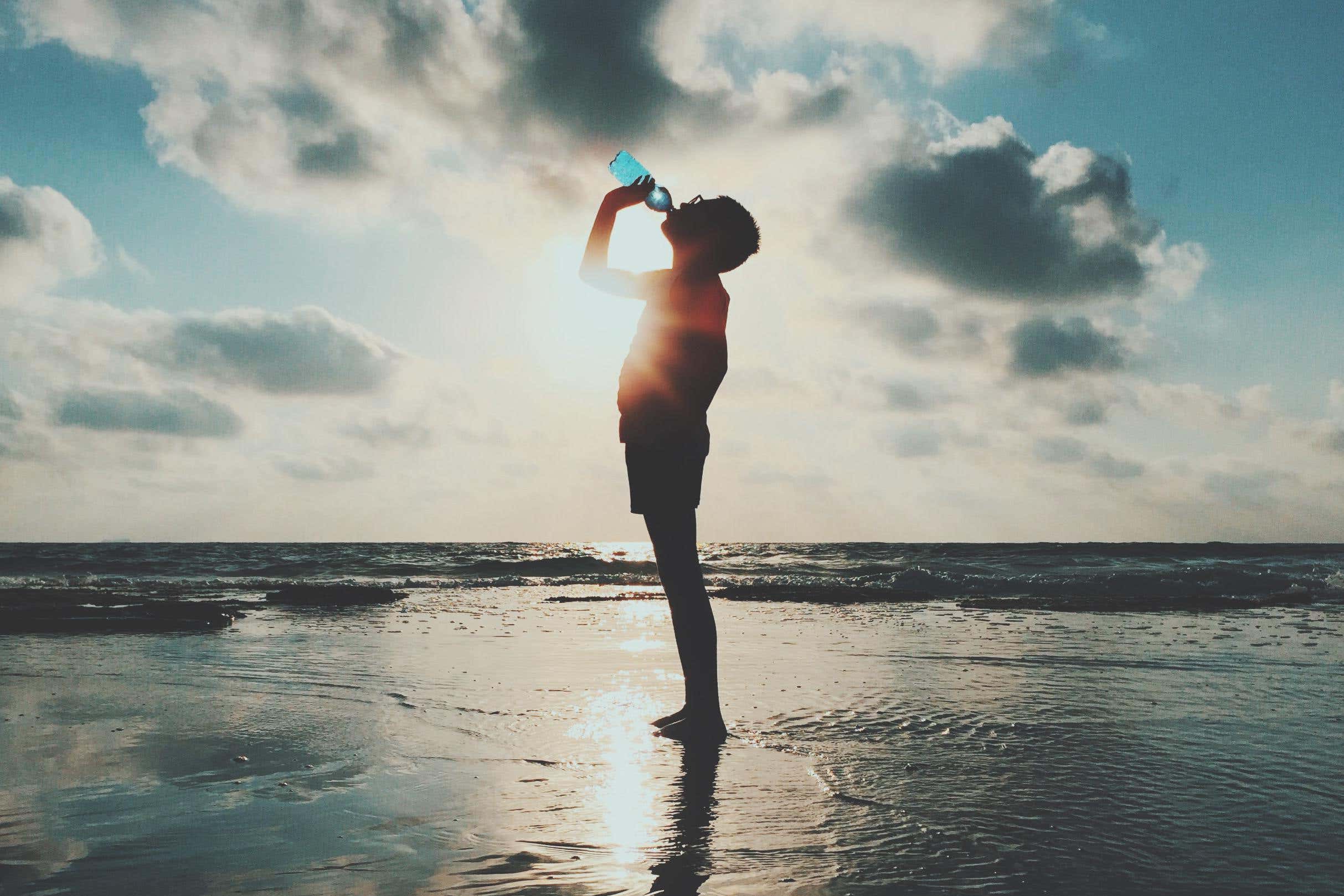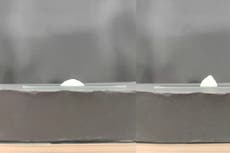Staying hydrated slows ageing and halves risk of dying young, study shows
Adults who drink around two litres of water a day develop fewer life threatening illnesses such as heart and lung disease

Staying properly hydrated can slow ageing and halve the risk of dying young, according to new research.
Adults who drink around two litres of water a day develop fewer life threatening illnesses such as heart and lung disease.
They also live longer than those who may not get sufficient fluids.
The findings are based on 11,255 individuals tracked for up to 30 years. They could lead to a screening program for older patients.
A recommendation known as the ‘8x8 rule’ advises downing eight 240ml glasses a day – almost two litres – on top of any other drinks.
Commuters are encouraged to take bottles onto the London Underground and schoolchildren bring them into their lessons.
Few office meetings commence without a giant jug sitting in the middle of the desk.
Co-author Dr Natalia Dmitrieva, of the National Heart, Lung, and Blood Institute (NHLBI), in Maryland, said: “The results suggest proper hydration may slow down ageing and prolong a disease-free life.”
Her team analysed data from the ARIC (Atherosclerosis Risk in Communities) study involving people from across the US.
Blood samples showed those with high amounts of sodium – which goes up as fluid intake falls – were more prone to chronic conditions and advanced biological ageing.
They were also more likely to die younger than counterparts whose levels were in the medium range.
The researchers assessed information participants shared during five medical visits – the first two when they were in their 50s and the last when they were aged 70 to 90.
Biological ageing was measured through 15 markers including blood pressure, cholesterol and glucose levels.
This shed light on cardiovascular, respiratory, metabolic, kidney and immune system health.
Other factors like age, race, gender, smoking history and hypertension were taken into account.
Adults with higher levels of sodium within the normal range – defined as between 135-146 milliequivalents per litre (mEq/L) – were more likely to show signs of decline.
This was based on indicators such as metabolic and cardiovascular health, lung function and inflammation.
For example, those with readings above 144 mEq/L were 50 per cent more likely to be biologically older than their chronological age.
This was compared to ranges between 137 to 142 mEq/L. Levels around 143 mEq/L correlated with an increased risk of up to 15 per cent.
Chronic conditions rose by up to two thirds (64 per cent) in those whose sodium was above 142 mEq/L.
They included heart failure, stroke, atrial fibrillation and peripheral artery disease, lung disease, diabetes and dementia.
Conversely, peers with sodium levels between 138 and 140 mEq/L had the lowest risk of developing these illnesses.
Controlled trials are necessary to determine if optimal hydration can promote healthy ageing, prevent disease and lead to a longer life. But the associations can still inform clinical practice and guide personal health behaviour.
Dr Dmitrieva said: “People whose serum sodium is 142 mEq/L or higher would benefit from evaluation of their fluid intake.”
Most people can safely increase their fluid intake to meet recommended levels, which can be done with water as well as other fluids, like juices, or vegetables and fruits with a high water content.
The National Academies of Medicine, for example, suggest women consume around 6 to 9 glasses (1.5 to 2.2 litres) of fluids daily and for men, 8 to 12 glasses (2 to 3 litres).
Others may need medical guidance due to underlying health conditions.
Co-author Dr Manfred Boehm, director of the Laboratory of Cardiovascular Regenerative Medicine at NHLBI, said: “The goal is to ensure patients are taking in enough fluids, while assessing factors, like medications, that may lead to fluid loss.
“Doctors may also need to defer to a patient’s current treatment plan, such as limiting fluid intake for heart failure.” About half of people worldwide don’t meet recommendations for daily total water intake, which often starts at six glasses (1.5 litres).
Dr Dmitrieva said: “On the global level, this can have a big impact. Decreased body water content is the most common factor that increases serum sodium.”
The study, published in the journal eBioMedicine, expands on research the scientists published last March which linked higher ranges of normal serum sodium levels with heart failure.
Join our commenting forum
Join thought-provoking conversations, follow other Independent readers and see their replies
Comments


Bookmark popover
Removed from bookmarks